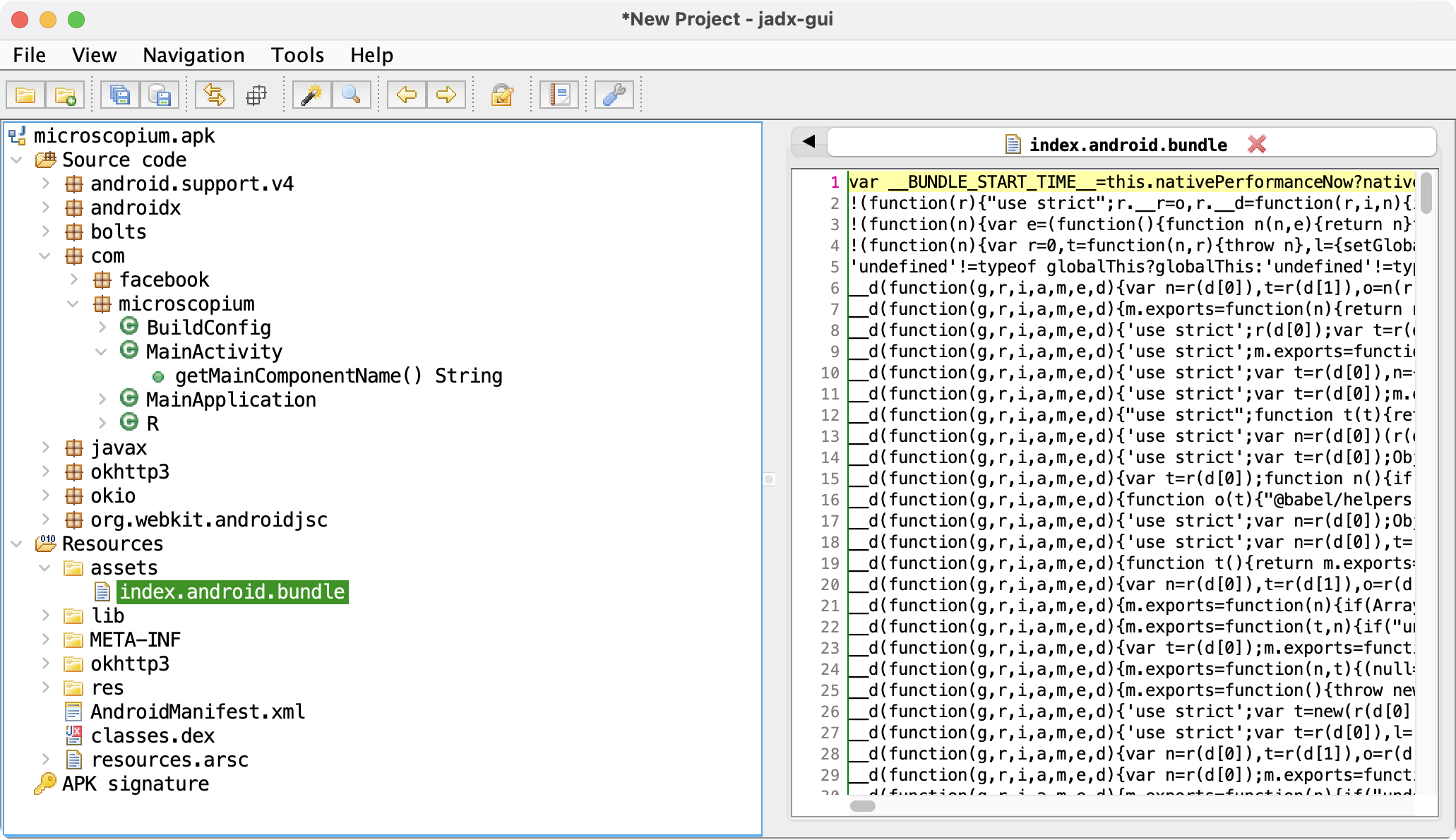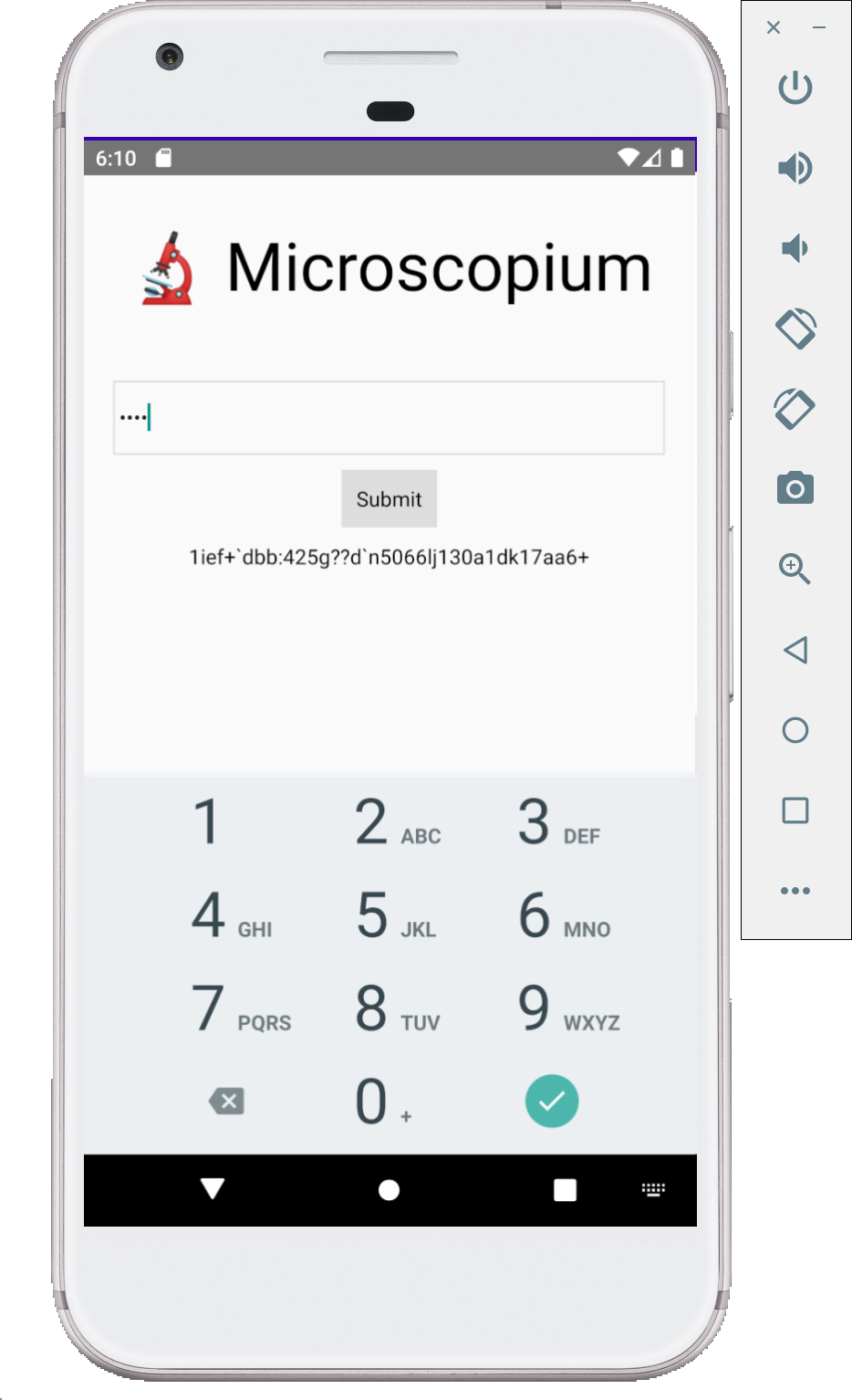category
mobile - medium
solution
This was a fun one. We get an .apk to download. Open it in jadx and quickly see this is a React App.
package com.microscopium;
import com.facebook.react.ReactActivity;
public class MainActivity extends ReactActivity {
/* access modifiers changed from: protected */
@Override // com.facebook.react.ReactActivity
public String getMainComponentName() {
return "Microscopium";
}
}
Being React, I expected a large chunk of the logic to be in a JavaScript file, which could be found in the resources section.

The app itsef was simple. Just a field where you could enter a PIN, and an output you’d get when you submitted. Every different PIN you entered produced a different output.

The logic for the PIN could be found in the JavaScript. Searching for the word pin would have revealed the relevant line. “Prettifying” the relevant line, and extracting the interesting bits, youd find this:
function b() {
var t;
(0, o.default)(this, b);
for (var n = arguments.length, l = new Array(n), u = 0; u < n; u++) l[u] = arguments[u];
return (t = v.call.apply(v, [this].concat(l))).state = {
output: 'Insert the pin to get the flag',
text: ''
}, t.partKey = "pgJ2K9PMJFHqzMnqEgL", t.cipher64 = "AA9VAhkGBwNWDQcCBwMJB1ZWVlZRVAENW1RSAwAEAVsDVlIAV00=", t.onChangeText = function (n) {
t.setState({
text: n
})
}, t.onPress = function () {
var n = p.Base64.toUint8Array(t.cipher64),
o = y.sha256.create();
o.update(t.partKey), o.update(t.state.text);
for (var l = o.hex(), u = "", c = 0; c < n.length; c++) u += String.fromCharCode(n[c] ^ l.charCodeAt(c));
t.setState({
output: u
})
}, t
}
The important parts were that the key had an existing part, pgJ2K9PMJFHqzMnqEgL, whereafter your pin would be appended. A simple xor operation was being performed over the cipher. Based on this, I wrote a simple brute force script, copying the code from the React app.
/*
package.json
{
"dependencies": {
"js-base64": "^3.6.0",
"js-sha256": "^0.9.0"
}
}
*/
const sha256 = require('js-sha256');
const Base64 = require('js-base64');
const cipher = 'AA9VAhkGBwNWDQcCBwMJB1ZWVlZRVAENW1RSAwAEAVsDVlIAV00=';
const n = Base64.toUint8Array(cipher);
for (var i = 0; i < 9999; i++) {
var o = sha256.create();
o.update('pgJ2K9PMJFHqzMnqEgL');
o.update(i.toString());
for (var l = o.hex(), u = '', c = 0; c < n.length; c++) {
u += String.fromCharCode(n[c] ^ l.charCodeAt(c));
}
if (u.includes("flag{")) {
console.log("pin=", i.toString(), "flag= ", u);
}
}
Run it to reveal the flag.
$ node brute.js
pin= 4784 flag= flag{06754e57e02b0c505149cd1055ba5e0b}